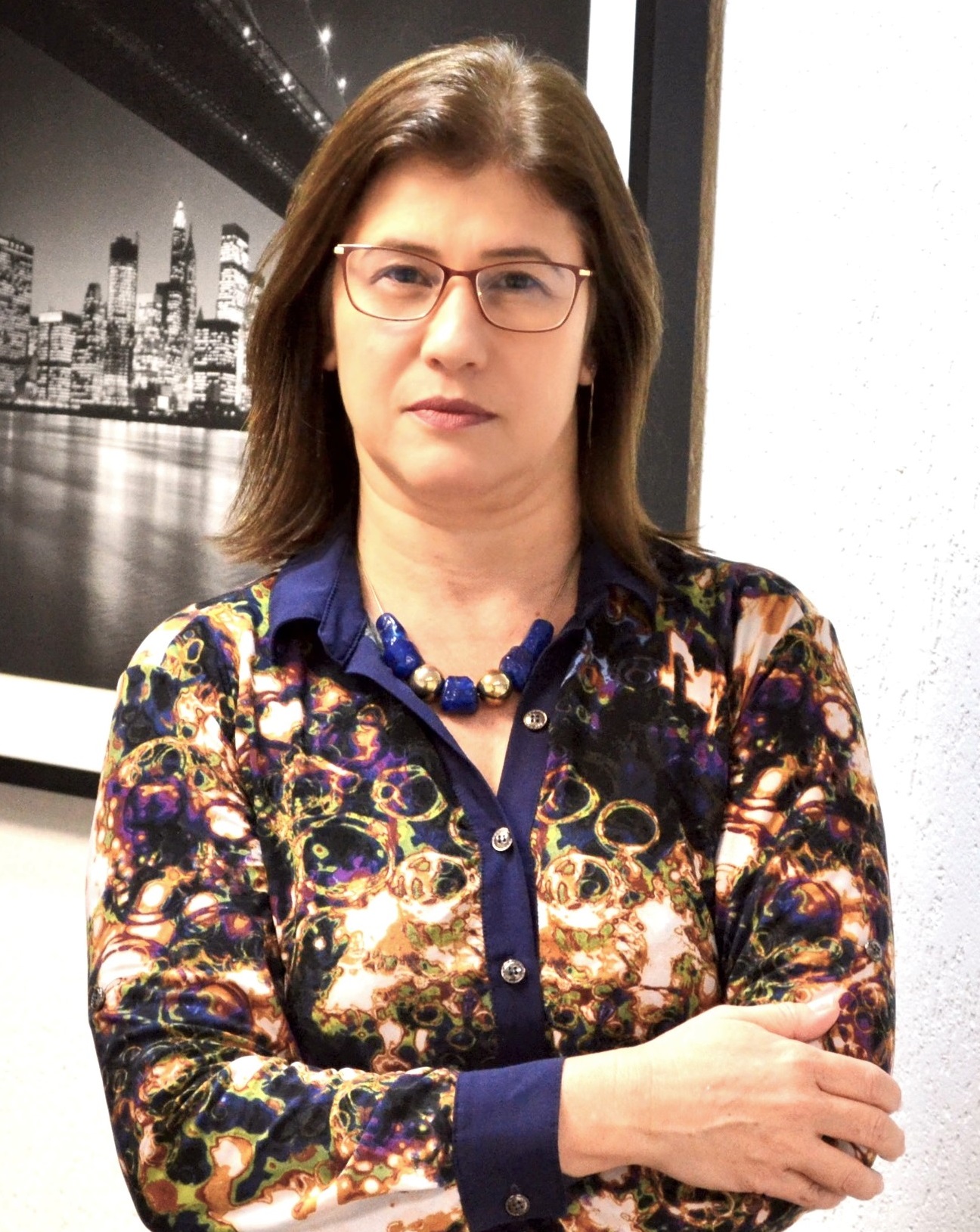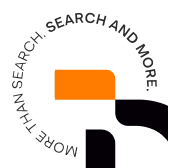In ancient times, when human survival depended on hunter-gatherers, any oversight was fatal. Over the centuries the threats have changed in intensity, but have remained in the form of wars, diseases, economic crises, or social downturns. This explains, according to various studies, why our brain is programmed to focus on risks. It probably also explains why being optimistic is a great challenge, even in the 21st century.
And when we say “optimistic” we don’t suggest being utopian or naive. On the contrary. The idea is to see possibilities in any kind of reality, even the most challenging ones, as is the world’s moment today. We are all going to have to reinvent ourselves. This is one of the few truths in such uncertain times. Those who are able to see this in a positive way are sure to improve the quality of their survival.

According to Adriana Prates, even in moments of instability it is necessary to plan for likely future scenarios.
For Dasein’s CEO Adriana Prates, even if it’s too early to make concrete plans in this moment of instability, it’s important to outline probable scenarios concerning your market, career, personal finances and possibilities to ensure quality of life. And, of course, it’s best not to leave optimism aside. “Do everything possible to keep your physical and emotional health stable, such as exercising at home, eating a healthy diet, and adopting new and better reading and entertainment habits.”
Avoiding consumerism by cutting expenses wherever feasible is also another recommended practice. “It is necessary to simplify habits and lifestyles in order to have some financial reserve, should push come to shove. Becoming aware of what is possible to control, as well as having patience with the variables that are out of one’s hands. Do you have free time? Can you volunteer and impact someone else’s life in a positive way? Here is a great movement that is tangible and possible. Thinking only about one’s own reality can lead to exhaustion,” she says.
Keeping your head in the present, avoiding future speculations that don’t add to your personal and professional life, is another important attitude, as oriented by the director of Dasein, Daniel Rezende. For him, fear in itself is not a bad emotion, the problem is fear by anticipation, without a real exposure to risk. If one takes all possible precautions, there is no reason to project bad scenarios, because this generates anxiety, a feeling of blockage and powerlessness.
To help dilute our tendency to focus on problems, a consciousness-raising exercise is necessary. According to Dasein’s associate consultant, Luzete Campolina, the facts always have negative and positive aspects. “Every coin has two sides, and it is fundamental to understand them in order to establish a basis for our behavior. It is up to us to give a say to the side that can help us the most, depending on the moment we are living through. If the goal today is mental balance, we must give a say to the positive side to focus on the development of skills that can be a competitive advantage in times of crisis.
She points out that encouraging positivity is always welcome. It’s a way to make people feel cared for, remembered, welcomed. “When we act like this we not only contribute to the people around us, but to ourselves. We feed positive thoughts that influence our feelings.We give ourselves the opportunity to be grateful for what we have and to be more accepting of what we don’t have, considering that we will probably need to let go of what doesn’t add value to our lives in the present moment.”
Acting upon negative feelings
It is natural to feel fear, anxiety, and sadness when faced with a situation as delicate as the Covid-19 pandemic. But, after all, how can companies and leaders guide their employees to accept these feelings so that they don’t give in to them? The first step is to understand that this situation generates a growing instability of emotions and that it’s necessary to welcome these feelings, not avoid them.

Daniel Rezende emphasizes that it’s important to keep your head in the present and avoid speculations that don’t add value.
In view of this, companies need to make room for professionals to express themselves and to have access to psychological or psychiatric treatment, highlights Adriana Prates. She advises that leaders should also undergo training focused on facing this situation and understand that many goals planned for 2020 will not be achieved. “When the leadership reviews the goal and brings it to reality, there is a decrease in the feeling of guilt. It is also important to be transparent to avoid a tense atmosphere among employees. Will there be layoffs? Will there not? What has already been defined should be on the table.”
The leader emphasizes the importance of creating a new routine for home office, to get closer to the team, to contribute to discipline and mental sanity. “It is a way to stimulate the feeling of belonging, of collectivity. You can’t demand perfection now. You need empathy and flexibility. Know how to listen. And learn from those you lead. What suggestions can they give? Ask them to define some of the goals they can handle. That kind of autonomy is good for them.”
Regarding medium and long term actions by the companies, Daniel Rezende calls attention to the role of the human resources and internal communication sectors. These are areas that are becoming even more important, especially because they are close to people, offering support and preparation to face the new challenges that are to come. “More than ever, the actions aimed at well-being inside and outside the business environment will be fundamental to maintain the performance of the teams, involving leaders and subordinates. At the same time that it must be involved in strategic decisions, HR will play a leading role between people and operations, not only as a means of support, but as a force that generates results through people. They will be agents in building trust, something built through dialog and joint efforts.”
According to Luzete Campolina, solving problems in this new scenario requires a systematic way of thinking and acting, as well as forms of governance that are increasingly transversal and sophisticated. “It’s challenging, but possible,” she guarantees. One practice that can be useful is the study of collaborative experiences and well-founded analyses, as is the case presented by McKinsey in the article “Safeguarding our lives and our livelihoods: the imperative of our time”. This material presents scenarios that can support discussions and practices among leaders and teams.
“Following up on information from reliable sources, with a focus on the solution and not just the problem, is of paramount importance,” she stresses. “But this is only one of the steps to be taken. For the future context, other competencies will need to be put in place, such as creativity, resilience, collaboration, discipline, negotiation, and continuous learning that will make us follow the day-to-day unfoldings and adapt our actions to a new reality.”
Do we always have to do more?
Created as an alternative to social distancing, professional and personal digital content is offered daily on social networks. Furthermore, many internet users and influencers make it a point to share their new productive routines and how they manage to always stay productive, even in the midst of a pandemic. Because of this excess of content, it is important to be aware of the fine line between consuming such content for inspiration and trying to produce content in the same manner as others, comparing oneself to other people – which can lead a person to burnout, generating anxiety, stress, or even depression.

For Luzete Campolina, stimulating positivity makes people feel welcome.
To avoid this kind of problem, it is important to select that wich is fundamental for you at this moment, indicates Luzete Campolina. “Don’t feel the need to know everything. Be selective, especially considering reliable sources of information that can add value to you. And if you can get together with people who have the same purpose it will be even better, because at this moment collaboration will strengthen individuals even more, either mentally, or creatively and in confronting situations. When we move ahead in such a way, without realizing it, we start to deal better with the new reality, creating new mental models that help us control stress, anxiety and depression.”
Daniel Rezende, on the other hand, suggests that people look to the various digital stimuli as a way to dispel anxiety, boredom, or sadness. “I don’t see a problem with being productive, or staying productive. It’s a way to help create a healthier environment, a new perspective to take some advantage of the crisis and put your mind on good things, be it learning, a moment of leisure and relaxation. It contributes to staying further away from pessimism, anxiety and fear.”
Positivity in practice: 4 attitudes that can be taken into practice right now:
1-Be more human. Allow yourself not to have all the answers right now, opening yourself to the new and to the contributions to come.
2-Practice active listening. Be welcoming to the workforce, allow them to talk about their moment and be positive even considering the current complexity.
3-Enjoy the simple things. To observe the small gestures, the things around you, is to value freedom, people, family.
4-Know your team. Understand each person’s talent (the visionary, the strategist, the executor, the director, etc). When redefining plans and goals, it will be necessary to use them in their entirety.
Article published in Dnews, July 2020, and revised in october 2021.



